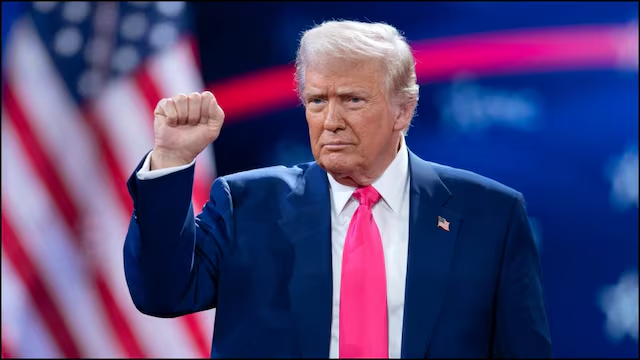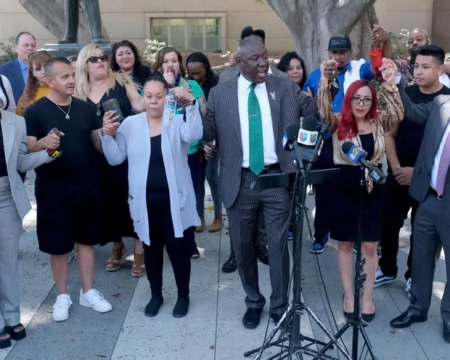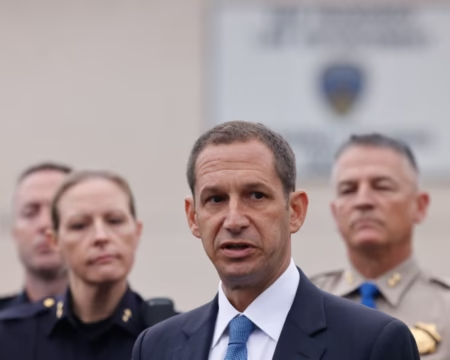WASHINGTON, D.C. – U.S. President Donald Trump has intensified his criticism of the United States Agency for International Development (USAID), once again questioning its funding allocation to India. Trump argued that New Delhi “does not need the money” and accused the U.S. government of mismanaging taxpayer funds.
The controversy erupted after the U.S. Department of Government Efficiency (DOGE) announced a plan to cut expenditures, which included canceling millions of dollars in foreign aid. Among the defunded programs was a $21 million initiative aimed at increasing voter turnout in India.
Trump’s Ongoing Criticism of USAID Spending
Trump has raised concerns about USAID’s financial commitments multiple times, claiming that the agency’s priorities do not align with American interests. In a statement, he asserted that U.S. funds should be used domestically rather than being sent to countries that do not require economic assistance.
“They take advantage of us,” Trump said. “India is a strong and growing economy. There is no reason why American taxpayers should be funding their elections.”
His remarks have fueled an ongoing debate about foreign aid expenditures, with some officials supporting the cuts and others warning of potential diplomatic repercussions.
DOGE’s Decision to Slash Foreign Aid
The Department of Government Efficiency has been evaluating U.S. foreign aid programs to identify unnecessary spending. The decision to revoke the $21 million allocated to India is part of a broader initiative to reassess international funding commitments.
A spokesperson from DOGE stated, “Our goal is to ensure that U.S. taxpayer dollars are spent effectively. Given India’s economic standing, this particular grant was deemed non-essential.”
The move is expected to affect other aid programs as well, with the department planning further reductions across various sectors.
India’s Response to the Funding Cuts
Indian officials have remained largely silent on the issue, with no formal response from the Ministry of External Affairs. However, sources within the government suggest that India was neither consulted nor informed about the aid allocation prior to the controversy.
Experts argue that India’s election process is well-established and does not rely on external funding. With a population of over 1.4 billion and a robust democratic system, India has consistently conducted large-scale elections without foreign financial assistance.
Reactions from U.S. Lawmakers and Analysts
Trump’s comments have drawn mixed reactions from U.S. lawmakers. Some Republicans have backed his stance, arguing that American funds should be prioritized for domestic needs. Senator Mike Johnson (R-TX) stated, “It’s time we focus on our own country. Foreign aid should be reserved for nations in real need.”
On the other hand, some Democrats have criticized the president’s remarks, emphasizing the importance of strategic partnerships. Senator Lisa Collins (D-NY) countered, “Foreign aid, when used correctly, strengthens diplomatic ties. We should not make hasty decisions without considering long-term implications.”
Policy analysts have also weighed in on the issue. James Porter, a foreign relations expert at the Global Policy Institute, explained, “While questioning foreign aid spending is valid, it’s important to remember that U.S. assistance programs often serve broader strategic interests.”
Impact on U.S.-India Relations
The controversy comes at a time when U.S.-India relations are growing in economic and defense sectors. Both nations have collaborated on various initiatives, including trade agreements, military partnerships, and technology sharing.
While the funding cut is unlikely to significantly impact diplomatic ties, analysts suggest that such debates could create friction in future negotiations.
A Broader Debate on Foreign Aid
The USAID funding dispute has reignited a larger conversation about the role of foreign aid and its impact on U.S. interests. As the government continues to reassess its international spending, questions remain about which programs should be prioritized and which should be scaled back.
For now, Trump’s criticism has added fuel to an ongoing debate, raising concerns about transparency and efficiency in foreign aid allocation.
For more updates on global politics and economic policies, visit Daljoog News.







